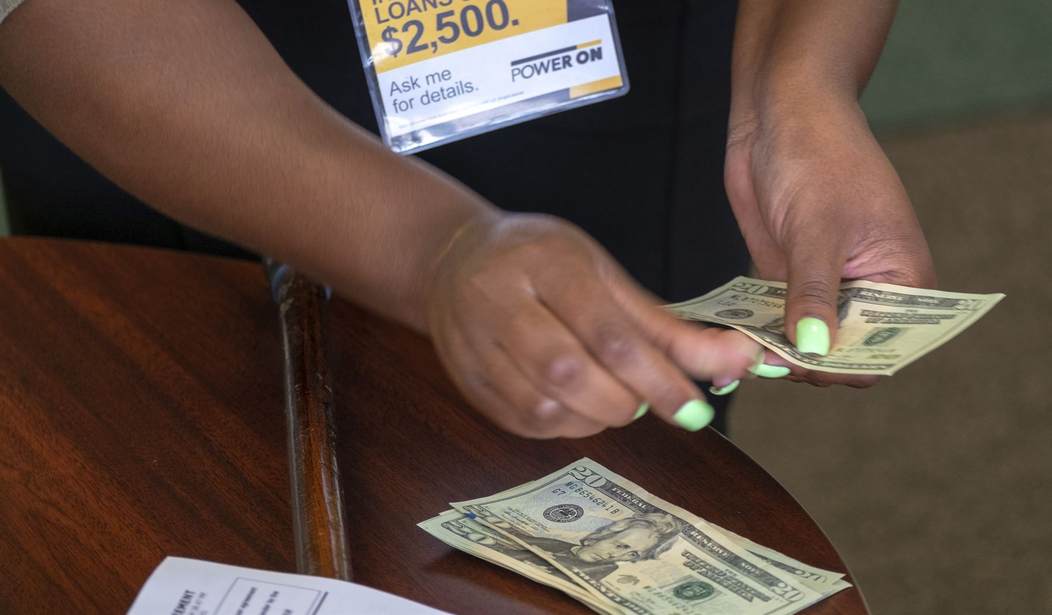While a number of California cities have attempted to enact universal basic income pilot programs and it’s become a favorite topic among progressives, Los Angeles County will be voting today to try it out in a larger, more densely populated area. The County Board of Supervisors will be deciding whether to move forward with their own pilot program that will pay more than $1,000 per month to at-risk youth. But if you’re wondering how they can possibly afford to do this for all of the impoverished young people in such a densely populated area, they’re not. As with other tests of this sort, the money will only be going to 150 young people, and they will be selected from a pool of people who are already participating in other programs designed to keep them on the straight and narrow. (Fox News LA)
The Los Angeles County Board of Supervisors will vote Tuesday on a three-year pilot program to provide $1,204 per month to 150 county residents aged 18-24.
The money would go to youth who are currently receiving general relief benefits and participating in the Departments of Public Social Services’ TAYportunity program.
The vote comes more than two months after the Supervisors voted to approve proposals for a pilot guaranteed income program and directed staff to report back on implementation.
Assuming this goes through (which is a safe bet) the recipients of this government generosity would already have to be receiving some form of general support, meaning that they are in one of the lowest income brackets. They would also have to be current participants in the TAYportunity program, a part of the General Relief Opportunities for Work effort.
Before I rain on anyone’s parade, I’d like to point out some of the positive aspects of what they’re trying to do here. You have to translate a lot of the woke speech in the descriptions to figure it out, but they are talking about “transitional youth” being selected for the plan. In other words low-income youth who might be in danger of falling in with the gangs and starting down a dark path they may never return from. And any young people who are already participating in the existing GROW programs successfully are probably motivated and good candidates. This is certainly an admirable effort.
With that said, like all of these pilot programs, they come with some serious challenges and questions. First of all, there are an estimated 1.5 million people in L.A. County living below the poverty line. Even if only 10 percent of them are in the target age group for this project, that’s still a figure in the hundreds of thousands. How do you scale up a project from 150 people to something of that size? And if you can’t, why are you doing a trial run of an unscalable model?
Also, while popular among progressive voters, these basic income guarantee programs have all run into problems. When they tried it in Stockton, California, they initially couldn’t even find enough people to sign up for it. Most of the target audience suspected it was some sort of trick or trap. And when they did get it up and running they were supposed to track where the money went and what uses it was being put to. Unfortunately, they learned that tracking the money was nearly impossible and a lot of it they could track wasn’t going toward paying bills, putting food on the table, or climbing the economic ladder.
Much like Stockton, it sounds like L.A. County will be trying to vet the participants carefully, selecting people that are most likely to succeed, because everyone will be watching. I have no problem with that because we should be able to reward those who are already trying to stay out of trouble and pull themselves up by their bootstraps. But while helping 150 people is still an admirable goal, it doesn’t really move the needle in terms of the literal army of other young people who are either already in the grip of the gangs or on their way to it.
I can’t help but wonder if there isn’t some way to develop a similar program that intervenes when the kids are much younger, perhaps in grade school. And instead of giving the cash directly to the children, they could give it to parents who similarly participate in anti-gang programs and can demonstrate that their children are showing up for school, participating in after-school programs and are constantly under parental supervision at home. Those kids would likely have a far greater chance of avoiding becoming part of the gang violence problem and the participating parents could have some extra money to cover the costs of childcare and associated responsibilities. It’s just something to think about.







Join the conversation as a VIP Member